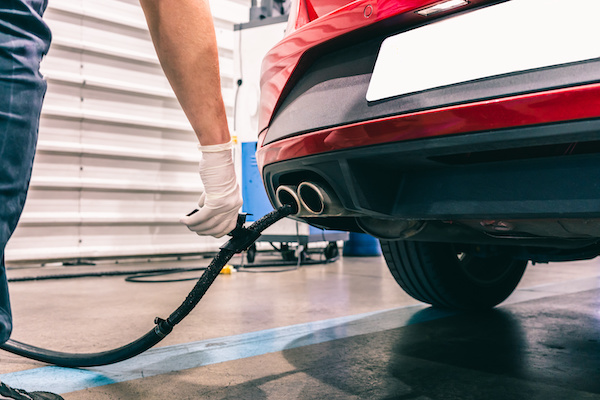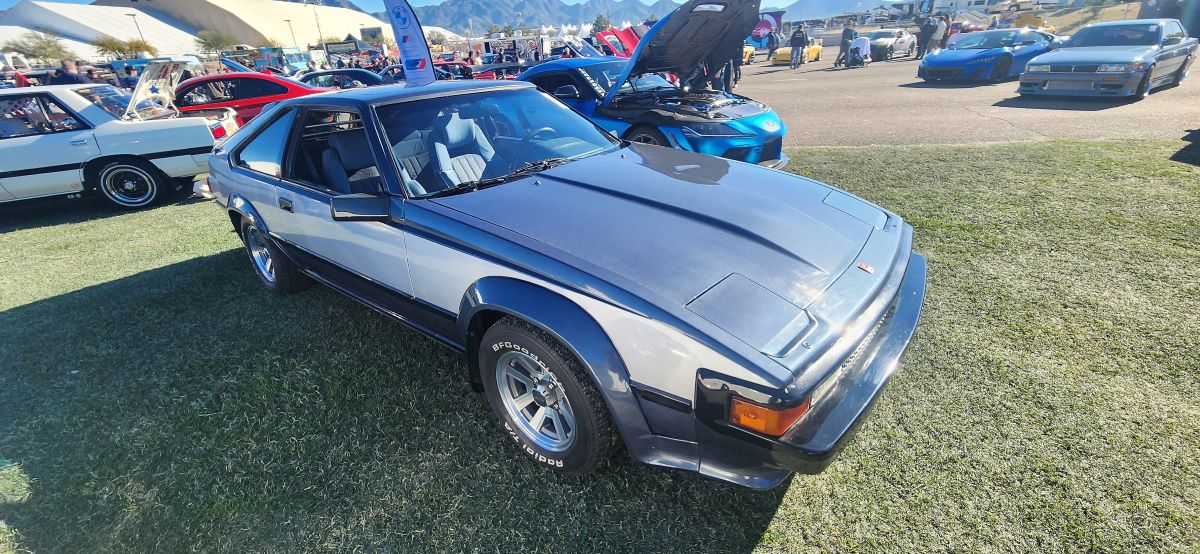You likely rejoiced with the news last month that SB712 (Senate Bill 712), the “Leno’s Law” that sought to promote exemptions for classic vehicles in California, passed the state senate. However, after going through the Assembly Transportation Committee, the bill’s current state reflects several amendments that give a hint that the honeymoon may be over.
Shannon Grove, a state senator representing the countrified city of Bakersfield, introduced the bill earlier this year with sponsorship from everyone’s favorite car guy, Jay Leno. While most states offer smog exemptions for cars 20-25 years and older, California has a requirement that vehicles 1976 and newer must be smogged. (If you’re not a resident of California and you think smogging cars almost 50 years-old sounds crazy, you’re not alone.) Grove stated on her government website, “These classic cars are infrequently driven, carefully maintained, and make up only a fraction of cars on the road. They are typically owned for their historical significance and collector value. Exempting them from the biennial smog check would strengthen California’s ‘car culture’ by helping preserve these historical treasures.” Additionally, the bill would exempt older vehicles from being smogged upon transfer to a new owner, as all new owners of used cars must get their vehicle smogged—even if it was smogged a day before sale.

If you’re not from the Golden State, you may not be familiar with how smogging is done—it’s not done at the DMV but from certified technicians scattered throughout the state. It could be your local mechanic, for example. There is no consistency in pricing or service. Subjectively, as a former resident in the previous decade, it comes off as a money grab by technicians who prey on ignorant vehicle owners, no different than the common trope about any mechanic. When it comes to older cars, they require more intensive testing because there’s no “plug and play” aspect like with newer vehicles. According to Hagerty, the cost to smog an older vehicle can be upwards of $200—that is, if you find a smogger shop with the proper equipment. As Leno says, “It doesn’t seem right … to turn people into criminals because they can’t afford a newer car or they don’t want to drive a new car. Or they move here from Nevada with an older car and now they have to sell it out of state.” Leno is afraid that, just like the film industry being driven out of California by high taxes, the same can be said for the classic car industry—in a state that can lay claim to being the birthplace of hot-rodding.
This bill passed the California state senate on June 4, 2025, and then went before the Assembly Transportation Committee. Now, a month later, things have evolved to this: the amended bill will provide a gradual expansion of the biennial smog check exemption, which includes adding an additional 10 model years (to 1986) over the next five years. Additionally, to qualify for full exemption, a vehicle must have a historical license plate and hold collector vehicle insurance.

Spinning this in a most positive way, Grove says on her website, “For over two decades, classic car enthusiasts have worked alongside legislators to try and expand the number of classic vehicles eligible for a full smog check exemption, but every effort has stalled before making it through the legislature. If Leno’s Law is passed and signed, even if it is not exactly what we originally wanted, it provides 10 additional vehicle model years and is a step towards protecting classic cars as a part of our history.”
From a Negative Nancy perspective, lemme ask my dad or, better yet, Performance Registration & Insurance, a California company offering vehicle registration, title transfers, insurance, and even specialized assistance with JDMs. This is the company’s well-written response on Instagram:
A once-promising piece of legislation aimed at supporting California’s vintage car community has been substantially weakened. SB712, originally introduced to exempt hobbyist vehicles aged 35 years and older from the state’s stringent visual emissions inspections, has been amended to the point where its benefits are now severely limited.
Under the revised version of the bill, exemptions will apply only to vehicles manufactured up to 1981, and even then, only if they carry both collector car insurance and special historical vehicle license plates. Additionally, while a rolling exemption will be implemented, it will cease at model year 1985—dramatically limiting the scope of vehicles that could have benefited from the bill’s original intent.

What was once seen as a rare bipartisan opportunity to offer meaningful support to automotive hobbyists and collectors has been reduced to a narrowly focused measure. Enthusiasts had hoped for a broader and more inclusive reform, and the scaled-back provisions now feel like a missed opportunity.
The legislative backpedaling has left many in the community disheartened. Instead of the substantial relief many hoped for, the bill’s current form offers only limited reprieve—raising questions about whether it still provides enough value to justify continued support.
Is there any recourse? Any word from Jay? Stay tuned!

